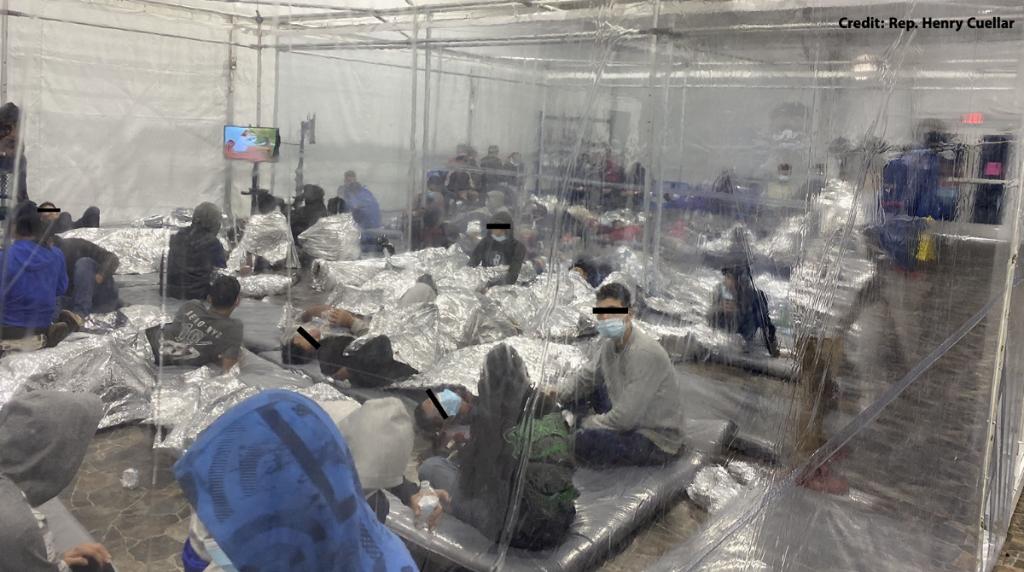Trump-era plan to expand DNA collection from immigrants is dropped
The rule would have allowed biometric data collection from children under 14-years-old

Your support helps us to tell the story
From reproductive rights to climate change to Big Tech, The Independent is on the ground when the story is developing. Whether it's investigating the financials of Elon Musk's pro-Trump PAC or producing our latest documentary, 'The A Word', which shines a light on the American women fighting for reproductive rights, we know how important it is to parse out the facts from the messaging.
At such a critical moment in US history, we need reporters on the ground. Your donation allows us to keep sending journalists to speak to both sides of the story.
The Independent is trusted by Americans across the entire political spectrum. And unlike many other quality news outlets, we choose not to lock Americans out of our reporting and analysis with paywalls. We believe quality journalism should be available to everyone, paid for by those who can afford it.
Your support makes all the difference.The US has dropped a Trump-era plan to expand biometric data collection from immigrants. The expansive use of state power would have given the government authority to demand eye scans, voiceprints, and DNA.
The US Citizenship and Immigration Services announced on Friday the rule, proposed on 11 September 2020, would be withdrawn as part of the Biden goal of reducing "barriers and undue burdens" on the immigration system.
While the proposed rule never came into effect, it signalled an escalation in the Department of Homeland Security’s access to the personal information of immigrants at any point in the process of becoming a US citizen.
It would have also removed age restrictions for the data, allowing them to begin collecting biometrics from applicants younger than 14 years old.
Department of Homeland Security secretary Alejandro Mayorkas wrote in the rule’s withdrawal that biometrics such as fingerprints, photos, and iris scans would still be collected "where appropriate", such as scans of people apprehended at the border.
In announcing the new biometric measures last year, the Trump administration said DNA would be used to ensure people were related to family members. It said the data would not be stored, and claimed improved vetting would reduce fraud.
Mr Mayorkas wrote that DHS is withdrawing the order as more than 5,000 comments called the breadth of the requirements beyond what is necessary and that their concerns may be justified.
"Many commenters wrote that the rule was unnecessary, offensive, an invasion of privacy, would infringe on freedoms, and violate the respect, privacy rights, and civil liberties of US citizens, legal immigrants, noncitizens, victims of domestic violence, other vulnerable parties, and children," the notice said.
"[They] stated that the rule was overly broad, highly invasive, and would impose excessive monetary costs on applicants and result in administrative delays in adjudicating immigration benefit requests that are already subjected to backlogs and long waits."
The American Civil Liberty’s Union’s staff attorney with the Speech, Privacy, and Technology Project, Vera Eidelman, said in a statement it would have massively expanded the government’s collection of biometric identifiers out of all proportion to any legitimate need.
“The Biden administration is right to withdraw this DHS proposal," she told The Hill. "But it also isn’t enough to protect the privacy and dignity of immigrants, their families, and their communities. The Biden administration must also rescind the Trump-era rule requiring forced DNA collection from individuals in immigration detention.”
Join our commenting forum
Join thought-provoking conversations, follow other Independent readers and see their replies
0Comments